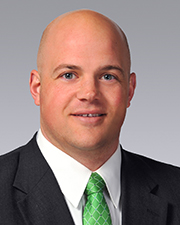
Keeping an eye on proposed legislation for CRE community - by Douglas Martin

Colliers International
Hard to believe that spring is almost here. Even though this year is flying by and the market continues to be active on all fronts, our NHCIBOR group of volunteers are still hard at work keeping a watchful eye on proposed legislation affecting the CRE community.
Thank you to Ralph Valentine, chair of the public policy committee, and the rest of this very active committee for your work. Here is a legislative update on the issues we are most closely monitoring.
House Bill 243 looks to establish a statewide wetlands setback. Currently, each municipality determines setbacks. It is estimated that 25 to 50% of available land will become undevelopable based on the proposed criteria as all parcels are uniquely shaped and only offer so much buildable area. NHCIBOR and NHAR are closely monitoring this bill and are consulting with our members in the engineering and construction industry so we fully understand the proposal.
The House Bill 268, regarding commission payments to business entities, has cleared the House and is on its way to the Senate.
Senate Bill 306 would establish a Housing Appeals Board, giving applicants who have been denied local approvals an alternative to Superior Court. NHCIBOR supports this bill.
Senate Bills 135 and 301 are being closely monitored. The ways and means committee is trying to freeze cuts previously approved in the business profits and business enterprise taxes.
NHAR testified in favor of Senate Bill 15, which requires that $5 million of revenue generated from the Real Estate Transfer Tax (RETT) be allocated to the Affordable Housing Fund each year. That fund is used by the NH Housing Finance Authority to facilitate the purchase, rehabilitation, or construction of affordable housing.
We are also keeping a close watch on water contamination bills relating to PFAS/PFOS and the discussion surrounding Opportunity Zone Funds (OZF). More specifically, requiring the NH Department of Revenue Administration (NHDRA) to treat investment in OZF the same as at the federal level. Currently reinvestment of monies into an OZF realized from the sale of certain capital assets which have a capital gain are taxable by NHDRA.
If you have any questions at all or if you would like to consider joining our public policy committee, please reach out and I would be happy to send along the meeting schedule.
Feedback by our members is important, please reach out. Thank you.
Douglas Martin is the 2019 president of NHCIBOR, Bedford, N.H.